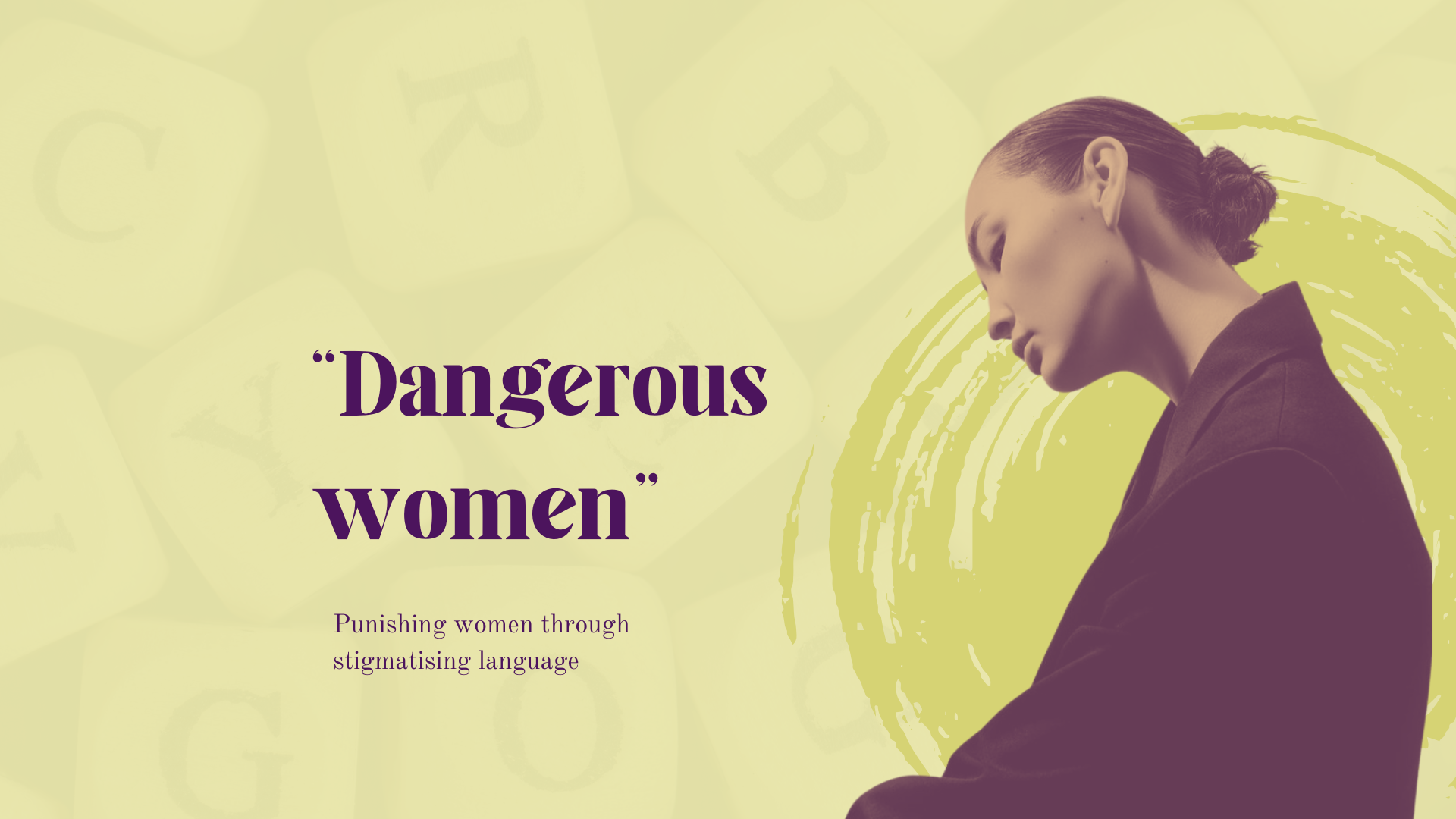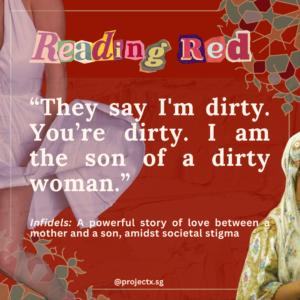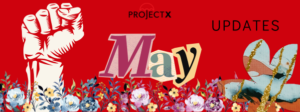This International Day to End Violence Against Sex Workers, we’d like to address another kind of violence that has become far more prominent today. Just two weeks ago, the Straits Times released an article about hair salons in Geylang that heavily implicated the sex worker community.
Besides the journalist’s approach to reporting which we have covered on our Instagram post, one more thing we’d like to highlight is the usage of language when reporting on sex workers. While it may not be the first thing that comes to mind when you think of violence, it can nevertheless result in great harm towards the community when it reinforces or shapes negative perceptions of sex workers, which can result in physical and other forms of violence.
Language is a potent tool in shaping public perceptions, especially when reporting on sensitive issues involving vulnerable groups. While the words and phrases used within the article may appear neutral or factual at first glance, a closer examination reveals how it potentially spreads misinformation, subtly reinforces stereotypes and societal biases, and frames sex workers negatively while ignoring structural issues in the sex trade.
Our deep dive into the Straits Times article
-
Potential Misinformation: Framing Suspicion as Fact
“Across six visits by ST to the area between October and November, suspicions of vice in the establishments were strong.
“Hairstylists” who wait outside their salons would offer hair washes and massages to men who walk by. After brief negotiations, men are led to the back of the salons, behind partitions or thin curtains.
Some of the units operated during the day like legitimate salons, with stylists and barbers.”
The article begins by framing hairstyling establishments in Geylang as inherently suspicious and linked to vice. Phrases like “suspicions of vice were strong” of the “at least 15 hair salons” lead readers to assume widespread illegality, even though no definitive evidence is presented. Additionally, the phrase “operated during the day like legitimate salons” implies that these services are not legitimate at other times, casting unwarranted doubt on the integrity of the businesses.
First, the phrasing in the article leads casual readers to wrongly assume that all such activities in these establishments are illegal or immoral, leaving little room to consider that some salons might be licensed and operating lawfully. If this impression accurately reflects the true state of affairs in Geylang, it raises the question: why haven’t the authorities taken decisive action? If no such clampdown has occurred, it seems more plausible that many of these establishments operate legally, making the article’s insinuations of widespread vice and illegality misleading.
If the reality is that most of these businesses are indeed illegal, the reporter should substantiate these claims with evidence rather than rely on unsubstantiated assertions. Providing concrete proof would strengthen the credibility of the article and prevent the perpetuation of misinformation.
Second, this misinformation and wrong assumptions formed by readers are dangerous. This language further perpetuates preconceived notions about Geylang establishments being fronts for illicit activities. These preconceived notions risk stigmatising the area and its businesses, potentially driving away legitimate operators. As noted by Mr. Simon Lee, “Many legitimate salons that used to be in Geylang have already moved out.”
Third, even if the true regulatory landscape is addressed towards the end of the article during the interview with Mr Simon Lee, the initial prejudiced impression has already been formed. For most readers, their takeaway is shaped by the first framing of the narrative, and subsequent clarifications fail to fully undo the harm caused by the initial bias.
This highlights a significant journalistic responsibility: the need for balanced and nuanced reporting from the outset, especially when addressing sensitive topics. A more cautious approach to language in the opening of the article could have mitigated these issues and fostered a fairer understanding of the context.
-
Perpetuating Stereotypes: The Loaded Language of “Brazenly”
“The salon the reporter patronised also brazenly touts its massage services on social media.”
The term “brazenly” perpetuates stereotypes about the dubious nature of the business by suggesting shamelessness or audacity. Why should a licensed, legal business engaging in legitimate promotional practices be labelled as “brazen”?
This choice of language implies that advertising massage services is inherently improper or illicit, casting unwarranted suspicion on the salon’s legitimacy without providing evidence. The article primes readers to view these businesses as shady and reinforces existing stereotypes about the industry, rather than offering a neutral assessment of their activities.
-
Portraying Women as Predatory
“Once inside, a woman grabbed the reporter’s hand and placed it on her bosom.
As she guided the reporter to lie down for the hair wash, a few other women started touching his legs and arms, hoping he would pay more for full-body massages. The services of another woman were offered for $40.
Even after being repeatedly turned down, the women kept trying.“
This section appears to describe the persistence of salon workers. However, the choice of phrases such as “repeatedly turned down” and “kept trying” suggests a disregard for boundaries, portraying the women as insistent and predatory. This framing positions them as aggressors.
First, this framing as aggressors detracts from the reality that these workers are neutrally providing a service within the norms of their industry. Regular customers frequenting such establishments are likely accustomed to these interactions, where the concept of consent operates differently. By excluding this context, the article sensationalises the reporter’s experience, presenting it as an invasion of his boundaries rather than a depiction of standard industry dynamics.
Second, this framing neglects the broader, deeply rooted causes. Even if one disagrees with my argument about industry norms and views the women as persistent, their actions could stem from economic desperation, a lack of viable alternatives, or even coercion by their employers. However, the article fails to delve into these nuances, instead reducing the women to one-dimensional characters in a vice narrative. By doing so, it strips them of agency and overlooks the systemic issues that drive their actions.
Third, this framing diverts attention away from those in power within the system toward the powerless. If these salons are unlicensed or involved in illegal activities, responsibility should rest with the operators who establish and manage such businesses. By focusing the narrative on the women, the article unfairly shifts blame to individuals who are often powerless within the system. Workers may have little to no control over whether the salon is licensed, as this is the responsibility of the operators or owners.
This misplaced focus perpetuates the cycle of punishing the vulnerable while allowing those truly accountable to evade scrutiny. A more nuanced approach would highlight systemic and structural factors—such as regulatory gaps, employer practices, and economic pressures—rather than singling out the workers as the face of the problem.
Ethical reporting: Why does it matter?
Media coverage plays a critical role in shaping public perceptions, influencing policy, and upholding the dignity, safety and rights of sex workers. Irresponsible reporting, including sensationalism and identifiable imagery, risks reinforcing harmful stereotypes, compromising safety, and perpetuating stigma.
In the past year, at least 11 news articles featured inadequately blurred images of sex workers during raids—violating their right to privacy and presuming guilt before due process.
The Women’s Charter – known for laws criminalising activities such as:
- Soliciting in a public place for the purpose of prostitution (Misc Offences Act, Art.19),
- Pimping or living on the earnings of a prostitute (Women’s Charter, Art.146) and
- Owning a brothel (Women’s Charter, Art.148)
targets vice syndicates, not individual sex workers. Media narratives must align with this intent, focusing on syndicate leaders rather than exploiting vulnerable individuals who may themselves be victims of crime.
Ethical reporting requires journalists to critically evaluate their word choices and framing, ensuring they neither exploit vulnerabilities nor perpetuate prejudice, instead fostering understanding and advocating for systemic change.
Our Call to Action
We hope that Journalists, editors and media professionals can develop and implement comprehensive media guidelines to promote responsible reporting on issues related to sex work, with an emphasis on the importance of avoiding sensationalism, stigmatisation, and the perpetuation of discriminatory stereotypes against women in the sex industry.
Ultimately, we hope that this will be a small step in the right direction in advocating for change and dealing with injustice without putting vulnerable groups on the line.






